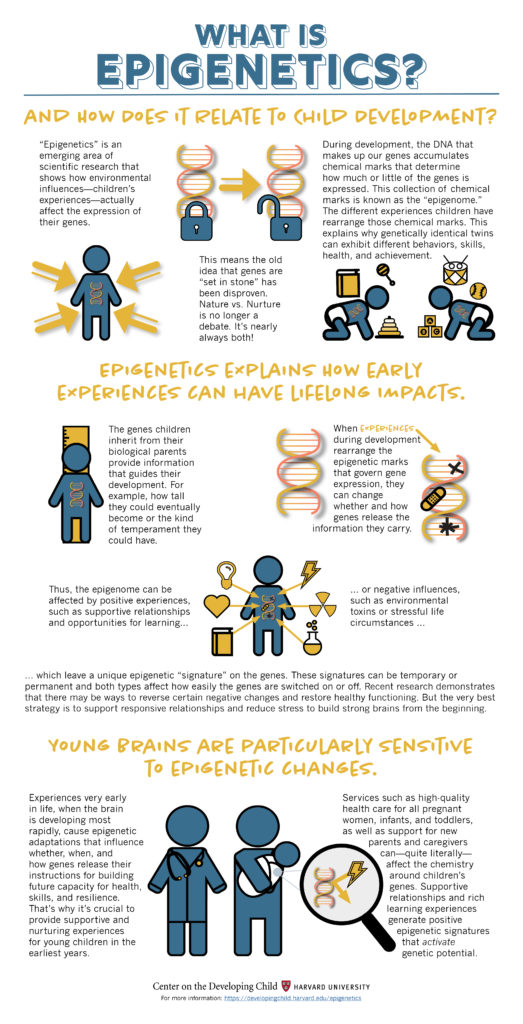How Do Nature and Nurture Influence Development?
Are we who we are because of nature (biology and genetics), or are we who we are because of nurture (our environment and culture)? This longstanding question is known in psychology as the nature versus nurture debate. Nature refers to the influence of the genes that people inherit. Nurture refers to environmental influences, beginning with the health and diet of the embryo’s mother and continuing lifelong, including family, school, community, and society.
The Nature-Nurture question seeks to understand how our personalities and traits are the product of our genetic makeup and biological factors, and how they are shaped by our environment, including our parents, peers, and culture. For instance, why do biological children sometimes act like their parents—is it because of genetics or because of early childhood environment and what the child has learned from their parents? What about children who are adopted—are they more like their biological families or more like their adoptive families? And how can siblings from the same family be so different?
We are all born with specific genetic traits inherited from our parents, such as eye color, height, and certain personality traits. Beyond our basic genotype, however, there is a deep interaction between our genes and our environment. Our unique experiences in our environment influence whether and how particular traits are expressed, and at the same time, our genes influence how we interact with our environment (Diamond, 2009; Lobo, 2008). There is a reciprocal interaction between nature and nurture as they both shape who we become, but the debate continues as to the relative contributions of each.
Epigenetics
A new discipline that is related to nature and nurture is epigenetics, which explores the many ways in which environmental forces alter genetic expression. This new scientific research shows that environmental influences can actually affect whether and how genes are expressed. In fact, scientists have discovered that early experiences can determine how genes are turned on and off and even whether some are expressed at all. Thus, the old ideas that genes are “set in stone” or that they alone determine development have been disproven. Nature vs. Nurture is no longer a debate—it’s nearly always both!
